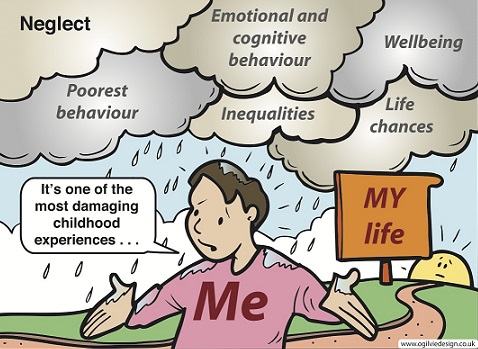 Neglect is one of the most damaging childhood experiences. It is associated with some of the poorest behavioural, emotional and cognitive outcomes, negatively affects wellbeing and life chances, and contributes to widening inequalities in our society. Policy makers, professionals and researchers see this as a priority area with increasing emphasis on partnership working.
Neglect is one of the most damaging childhood experiences. It is associated with some of the poorest behavioural, emotional and cognitive outcomes, negatively affects wellbeing and life chances, and contributes to widening inequalities in our society. Policy makers, professionals and researchers see this as a priority area with increasing emphasis on partnership working.
However, there is always a concern that we are not reaching all the children we need to reach, mainly as we might not know who they are. There can be issues of children who are affected by neglect not being able to trust other adults, not knowing how to voice their views, and/or adults working with them not sure of how they can create an environment where, a) professionals can build trusting relationships with them; b) children feel able to express their views.
In acknowledgment that work around neglect constitutes a priority for child protection, an interdisciplinary seminar series was held between October 2015 and March 2016, to explore notions of neglect, wellbeing and resilience, the role of arts based approaches in this discussion and in the context of policy, practice and research.